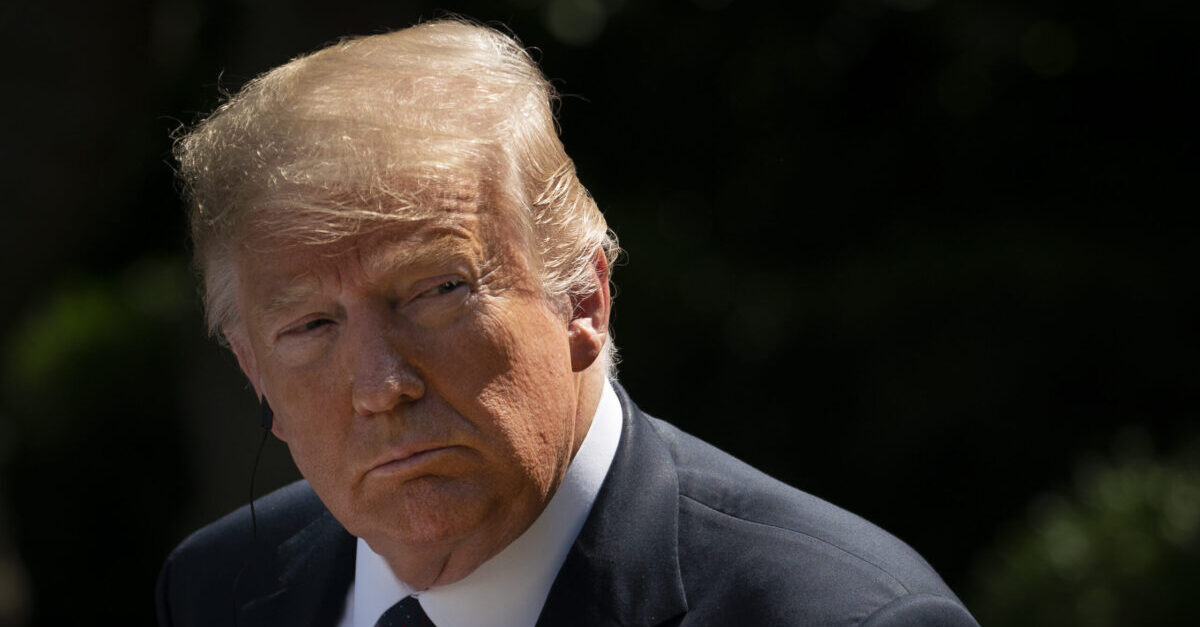
The Manhattan District Attorney’s Office told a federal court in New York City on Thursday that President Donald Trump “shouldn’t even have standing” to raise certain constitutional challenges against a subpoena for his tax returns and other financial records.
Assistant District Attorney (ADA) Carey Dunne essayed a confident posture in the Southern District of New York (SDNY) before U.S. District Judge Victor Marrero during a telephone conference while responding to arguments from Trump attorney William Consovoy.
“Our position, your honor, is ‘Bring it on,’ whatever he has left,” Dunne said–referring to a suggestion from Consovoy that the 45th president might attempt to drag out the year-long legal battle with another series of filings. “Let the president file an amended Complaint. We’ll file a motion to dismiss–which we think will prevail.”
While multiple media outlets incorrectly reported Thursday’s hearing would strictly deal with scheduling matters, the two sides addressed many merits of the case during the relatively brief teleconference.
Last Thursday, the U.S. Supreme Court gave Manhattan District Attorney Cyrus Vance a conditional win–ruling that presidents are not absolutely immune to the state criminal process while also sending the case back to the lower court for further proceedings. In a quick turnaround, Judge Marrero set the schedule for those further proceedings while both parties previewed the likely arguments they would raise.
Consovoy said Trump had not yet made up his mind as to whether he would again rely on an Article II defense against Vance’s subpoena but said that, if he did, the legal logic would focus on the subpoena itself instead of making wide-ranging immunity claims.
“We would focus less on stigma,” the president’s lawyer said. “We would focus on the physical burdens and the distractions.”
Consovoy also stressed that any amended complaint would necessitate a new series of discovery (an always lengthy process in any lawsuit or legal controversy).
ADA Dunne attacked the president’s likely efforts in both procedural and substantive terms, claiming that Trump’s alleged need for additional discovery was simply a delaying tactic.
“Every day that goes by, the president wins on his absolute immunity claim,” Dunne said. “Let’s not let delay kill this case.”
He went on to accuse the White House of “trying to turn this into a discovery campaign” before reciting the Anglo-American legal axiom that “justice delayed becomes justice denied” in order to bid for a speedy resolution of the conflict over access to Trump’s finances.
Dunne also directly addressed Consovoy’s suggestion that the president might continue to argue the U.S. Constitution shields him from complying with the subpoena because it would burden, distract or otherwise impede his executive branch duties.
“There is no Article II burden at all here,” because the subpoenas for Trump’s tax returns are not served on the president at all, “They are served on third parties.”
The underlying subpoena in the case was actually served against the accounting firm Mazars USA LLP, not Trump himself. Dunne went on to note that the president is not the one actually responding to the subpoenas. Now that immunity claims are gone he’s little more than a corporation’s “CEO” in legal terms, the ADA added.
“He doesn’t have to do anything to respond to this subpoena,” Dunne said. “He shouldn’t even have standing to raise a claim.”
Judge Marrero set the schedule as follows: Trump has until July 27 to file an amended complaint. Vance will then have until August 3 to file a motion to dismiss. Final briefs in the case are due by August 14.
[image via Drew Angerer/Getty Images]